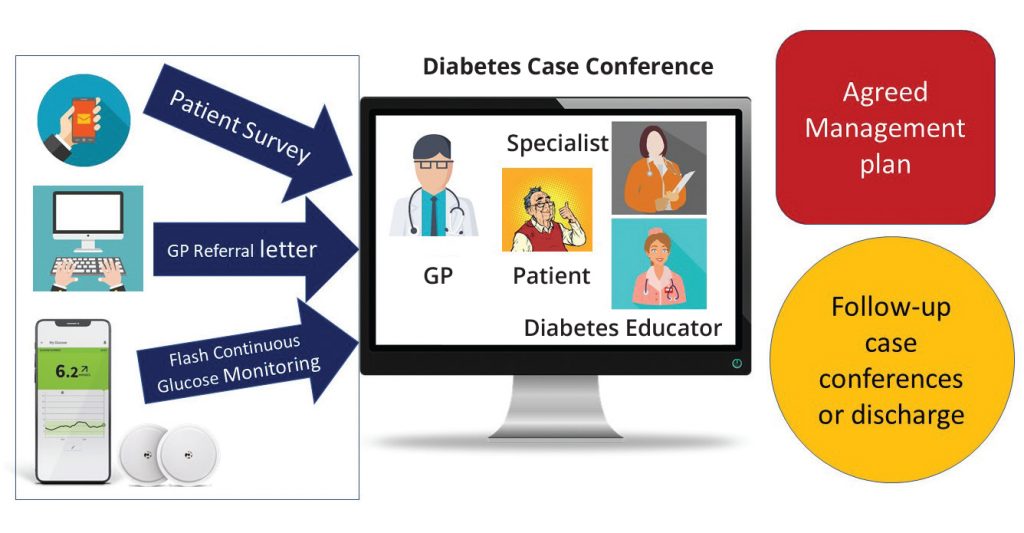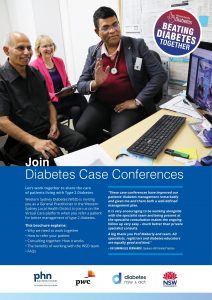Diabetes Case Conferencing
Our Model of Care
WSD engages in a holistic approach to address diabetes.
This strategy encompasses early detection, the empowerment of high-risk communities, and upskilling general practitioners (GPs) and community healthcare providers.
A special emphasis is laid on elevating the health outcomes for the Aboriginal and Torres Strait Islander populations and individuals coming from varied cultural backgrounds, who face an escalated risk of type 2 diabetes.
A central component of WSD’s initiative is the Diabetes Case Conference (DCC) model. It’s a multifaceted approach entailing patient referrals; thorough preparations prior to the virtual DCC; and follow-up support.
DCC are conducted virtually on the NSW Health myVirtualCare platform.
The patient and carer are usually sitting with the GP but can be at home or in the clinic with the Specialty team, which involves an Endocrinologist or Endocrine Registrar along with a Diabetes Educator. Sometimes the WSD dietitian is also invited as required and available.
Since the pandemic, WSD has continued to maintain a strong virtual care approach while combining this with face-to-face consultations where virtual care is challenging.
These learnings were shared by the Agency of Innovation’s (ACI) recent document ‘Spotlight on Virtual Care: Western Sydney Diabetes’.

Virtual Model of Care
With the continued use of VC, it is possible – with the GPs involvement – to:
- Review a new patient;
- Accurately assess the glycaemic control using fCGM;
- Commence treatment such as insulin;
- Provide the necessary education;
- Monitor and stabilise the insulin doses;
- Ensure the patient has good glycaemic control; and
- Discharge back to GP care – all without the patient needing to come to the hospital

GPs reported the program improved the relationship and communication between the GPs and specialist.
While the majority of GPs reported more confidence in managing diabetes, this program is expected to decrease referrals to specialist services.
This work is further enhanced by the WSPHN practice support team ongoing activity to build practice capability and capacity including aligned to the Patient Centered Medical Home GP principles.
Read more here.
Read our comprehensive brochure here.
Westmead Service here.

"The mere fact of discussing such complex cases with Glen (endocrinologist) proved to be invaluable. We were able to exchange ideas, mix strategies and it was very welcoming, most of all the VIP (the patient) being included in the management was the crowning glory!"
Dr S Seelan,
Bridgeview Medical Practice GP

